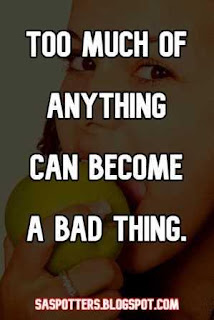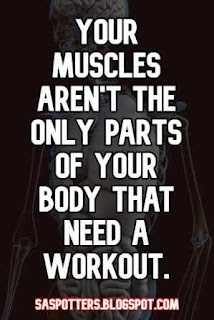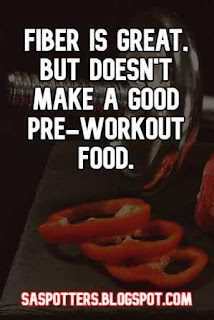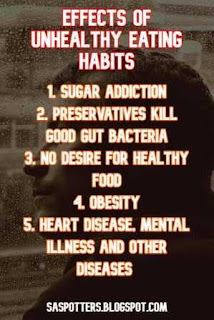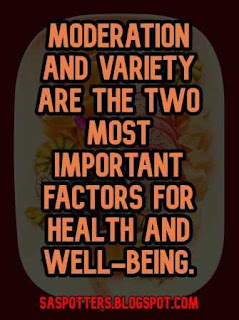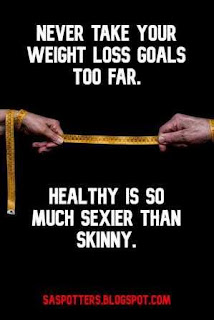 |
| Eat right for weight loss. |
Fat loss diet plan for male vegetarian
- Start you day right with a full glass of water and a cup of green tea
- Eat a salad of leafy green vegetables to curb your appetite for the rest of the day
- Focus on healthy fats and balanced plant protein for lunch and dinner
- Avoid processed food, sugar and sweeteners
- Have some healthy snacks on hand
- Don't eat the same thing every day
 |
| Diet summary |
1. Start your day right with a full glass of water and a cup of green tea
Drink water first thing in the morning for energy, health and weight loss
Most people don't drink enough water.
Dehydration can lead to weight gain. Start your day off with a fresh glass of water before you eat or drink anything. This healthy habit will help your body to detoxify after a long night's rest.
New wakeful chemicals like
cortisol and adrenaline need to circulate the body while sleepy chemicals like melatonin need to cleared away. This explains why water can help you to wake up so well. Don't rely on caffeine, sugar or other unnatural substances to wake up - Let your body learn to do it on its own.
Green tea as a healthy alternative to coffee
When you drink less caffeine, you teach your body to make its own energy instead of relying on an outside substance. This can lead to an increase in energy. Increased energy helps with weight loss because a higher metabolism burns fat.
Green tea has much less caffeine than coffee. This will still give you the caffeine that you want, but at a less additive amount.
The benefits of green tea are amazing. It is full of antioxidants, kills bad gut bacteria, improves oral health, improves focus and mood and encourages
the growth of good gut bacteria.
Simply swapping out your first cup of coffee for green tea will help you to get some of these health benefits.
 |
| Plain water is good for you. |
2. Eat a salad of green leafy vegetables to curb appetite
Green leafy vegetables like
spinach,
lettuce and
bok choy are extremely good for you. They contain almost all of the nutrients that you need like vitamins, minerals, antioxidants, fiber and other important plant compounds.
One of
the disadvantages of leafy vegetables is the fact that they don't contain a lot of carbohydrates, protein or fat. Another disadvantage is the fact that greens fill your digestive system with so much hard-to-digest fiber that it takes a long time before you feel hungry again. This means that they should be limited by people who struggle to eat enough.
If your goal is weight loss, these disadvantages become advantages. Your appetite will decrease and the amount of nutrients that can turn into fat will decrease when you eat a lot of green leafy vegetables.
Eat them as part of your first meal so that you will feel satisfied and eat less food throughout the rest of the day. It's an easy hack to reduce your food intake without going through
hunger.
Add healthy
lemon juice or
black pepper to your leafy greens if you struggle with the lack of taste. Don't worry if you don't enjoy them at first - you'll get used to them very quickly if you eat them every day.
 |
| Leafy greens are great for weight loss. |
3. Focus on healthy fats and balanced plant protein for lunch and dinner
Fruit and vegetables have almost all of the micro nutrients that you need. These nutrients include vitamins, minerals, fiber, water, antioxidants and plant compounds.
There are some nutrients; however, that plant food tends to lack in general. These nutrients include protein (and the amino acids that come from protein), fats (and the essential oils like
Omega 3 that fats contain),
and other minerals that are most commonly found in animal products like iron and zinc.
Many vegetarians experience deficiencies in these nutrients when they follow the vegetarian diet for a long time.
Protein deficiency is one of the main reasons why I don't recommend a fruit-only diet.
The good news is that you
can get these nutrients from plant foods - you just need to make sure that you eat the right foods to do so.
Healthy fats
You can find plenty of healthy fats in avocados, nuts and seeds. Eat enough of these foods to avoid essential nutrient deficiencies.
Omega 3 essential fatty acids for example are important for optimal heart health, brain function, hormone regulation and cardiovascular stability. You can find this nutrient in avocados, nuts and flax seeds.
Zinc and iron
Zinc and iron come from animal foods predominantly. You can find these precious minerals in foods that have protein. Most of the vegetarian-approved, high-protein foods listed below will have enough iron and zinc if you eat enough of them regularly.
Whole grains, beans, nuts and peas are great sources of zinc.
Beans, lentils, nuts, leafy greens and whole grains are great sources of iron.
Protein
Plants typically don't have a lot of protein. Raw plant foods are usually high in fiber and help to decrease your appetite. This can lead to a protein deficiency. It is important that you eat enough of the plant foods that have protein so that your body has all of the nutrients that it needs.
Good protein sources for vegetarians
- Nuts
- Nut butters and nut milks
- Seeds
- Lentils
- Legumes
- Whole grains
- Beans
- Peanuts
- Oats
- Peas
- Chickpeas
- Soy (tempeh and tofu)
- Quinoa
Do not eat one or two of these foods exclusively. Eat a variety because a lot of them contain incomplete protein. Protein breaks down into amino acids in the gut. Your body takes these amino acids from the blood stream and combines them to form new protein in cell tissue. Most plant sources of protein don't have all of the amino acids that your body needs to form a new protein.
Brown rice and beans, or whole grains and nut butters, form a complete protein when you combine them. You will get all of the amino acids to form new protein when you eat a variety of the foods listed above.
 |
| Eat this to avoid nutrient deficiencies. |
4. Avoid processed food, sugar and sweeteners
Many people think that they will lose weight if they cut out all animal sources of food. This will only help you to lose weight if you avoid other processed food as well. Processed food, sugar and sweeteners lead to weight gain.
Junk food has a large number of disadvantages. It is designed to make you eat as much as possible. Processed food contains addictive substances like sugar, artificial flavor enhancers, sodium and other chemicals. They contain large amounts of the macro nutrients carbohydrates and fats. These nutrients convert into fat very easily. Foods that turn into fat easily increase your appetite because they don't turn into energy instead of storage.
Sugar increases insulin. Insulin reduces blood sugar by storing it as fat. This will reduces the sugar that your body actually burns for energy before your next meal.
Artificial sweeteners make you gain weight - possibly more than sugar. They make you addicted to sweetness (A study, in the link above, found that artificial sweeteners are more addictive than cocaine). Sweeteners raise your insulin (the fat creation hormone) levels.
Man-made foods are made to maximize sales. They don't contain the nutrients that we need - they rather contain the nutrients that make us eat more of their produces.
Choose natural food over processed food. Nature has already given us all of the nutrients that we need to stay healthy.
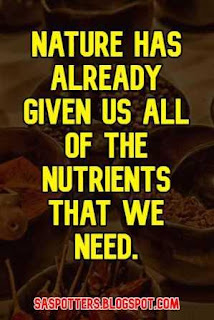 |
| Natural food is healthy. |
5. Have some healthy snacks on hand
Fat loss for vegetarian males is about more than calorie restriction. You don't need to starve yourself to lose weight. Natural plant food will automatically satisfy your hunger cravings and give your body the nutrients that it needs. When your body has the nutrients that it needs, it won't crave more food.
Deficiencies (from processed food or junk food) cause an increase in appetite. The fiber, vitamins and other nutrients in natural food will satisfy you instead.
I used to struggle to avoid sugary drinks when I visited family. It was easier for me to avoid the temptation when I carried a water bottle with me wherever I went.
Make sure that you have healthy snacks on hand to avoid falling prey to temptation. Keep a bag of nuts with you or pack a healthy lunch ahead of time. Have some frozen dinners in the freezer for times when you don't feel like cooking.
 |
| Plan ahead of time |
6. Don't eat the same thing every day
We like to over-simplify things. Simplicity helps us to achieve success.
The problem with simplicity, when it comes to nutrition, is that our bodies need a whole range of different nutrients.
We can keep things simple by eliminating processed food and opting for nothing but natural, whole food. You can't simplify things by eating from limited food choices exclusively. This will lead to nutrient deficiencies.
Our bodies are good at storing excess nutrients to use later when there isn't enough of it. When we eat the same thing every day, our bodies never get to burn through the nutrients that it stored and it never gets to acquire new nutrients that our current diet lacks.
Protein, vitamins, fats and minerals like iron are good examples. You get certain amino acids from whole grains. Other amino acids are found in nuts. You can't have one instead of the other. If you ate a lot of nuts yesterday, eat more whole grains and seeds today.
This will help to keep things interesting as well.
 |
| Change can be healthy. |
Male vegetarian weight loss diet chart
1) Wake up: Drink water - and then green tea
2) First meal: Leafy green vegetables
3) Lunch and dinner: Healthy fats and whole protein
Notes
1) Avoid processed food, sugar and sweeteners
2) Have healthy snacks on hand
3) Eat different foods for nutritional variety
 |
| Save or share this image. |
Conclusion
You can lose weight as a male vegetarian. Focus on healthy, natural food and stay away from the unhealthy, processed food that leads to weight gain.
Leave me a comment if you are inspired to live healthy because of this article. Share it with someone that you think will benefit from this diet. Always consult your medical practitioner before you embark on any new eating plan. Stay Strong!









